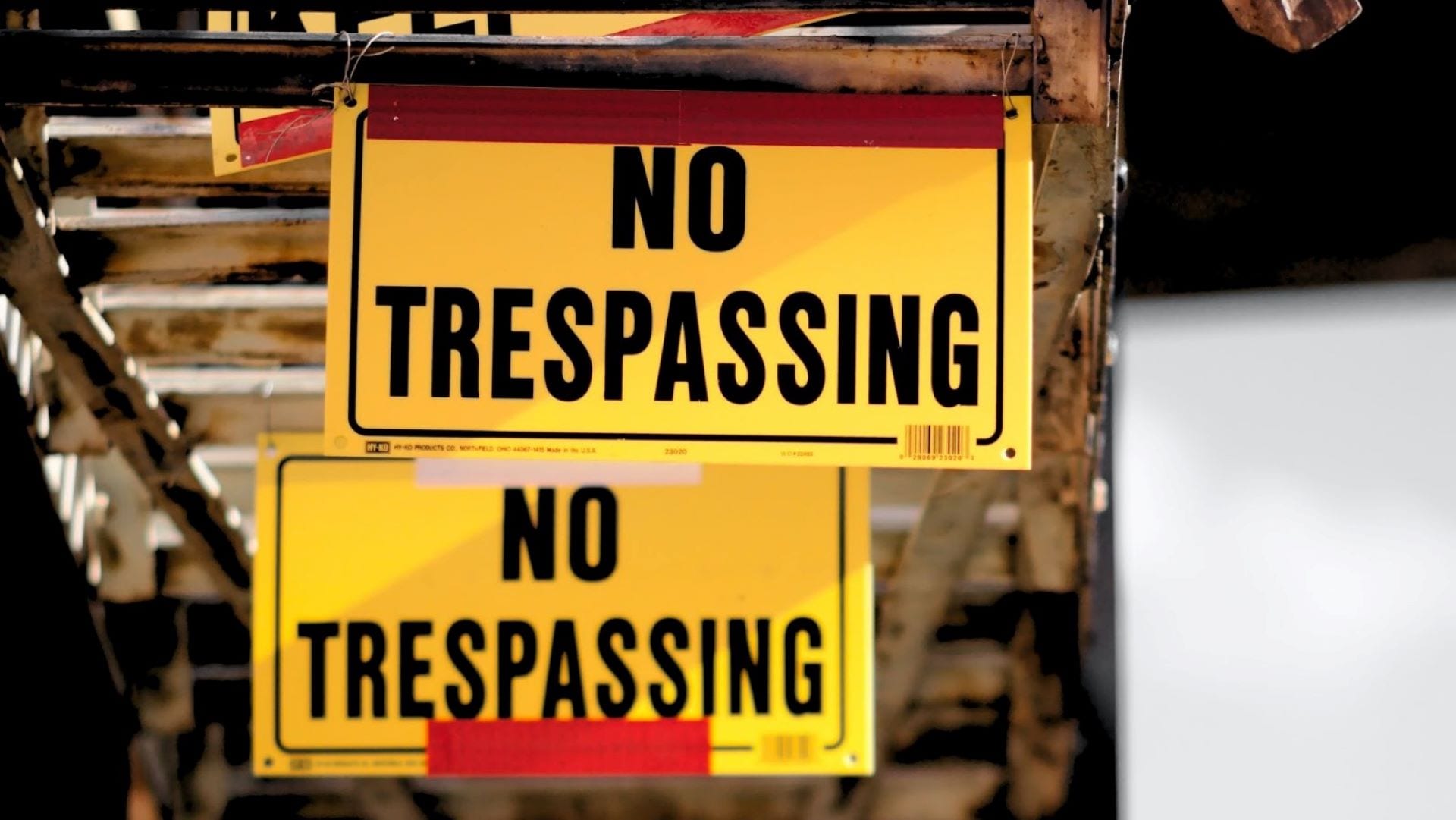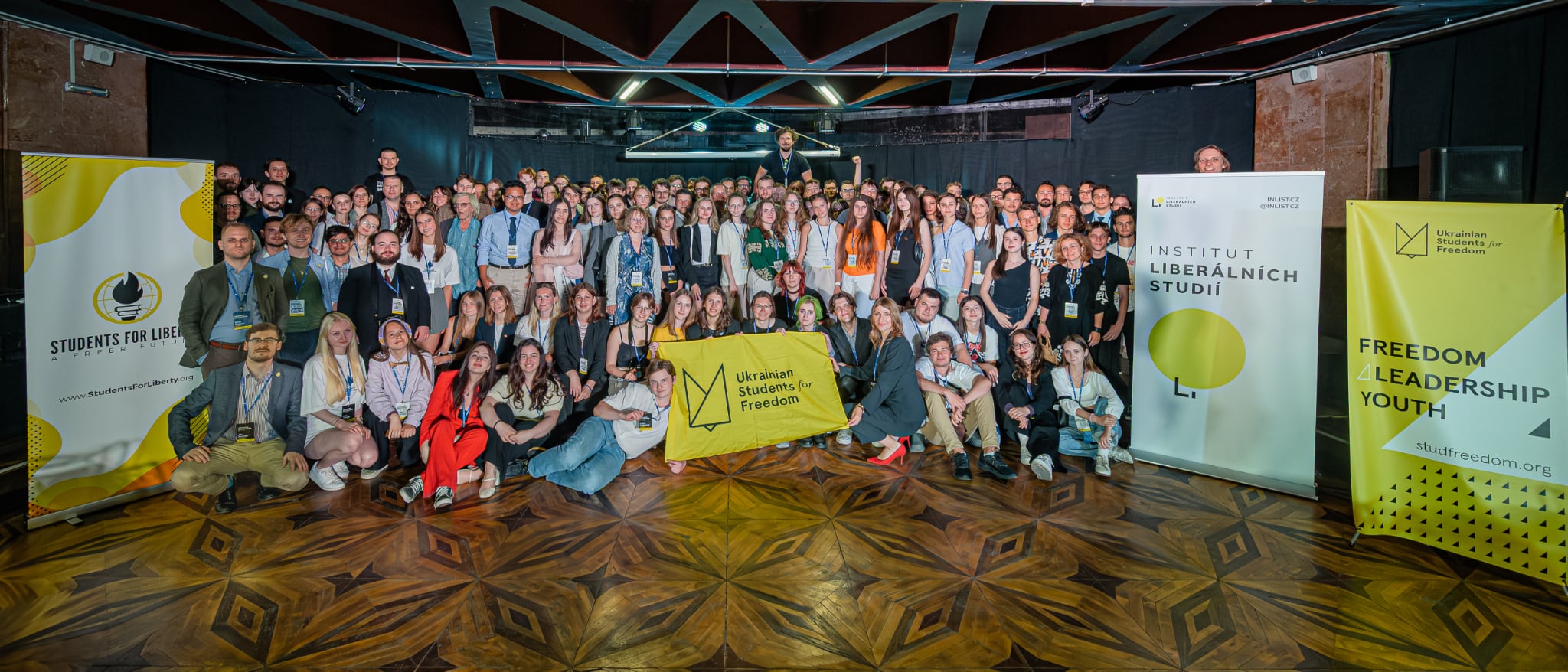In part one, we discussed the dangers of corporate censorship and why ignoring it, even under the guise of protecting private property, is not a solution. Corporate censorship is as dangerous as government censorship, possibly more dangerous due to there being fewer limits on the power of companies under many legal systems.
However, there is still much to learn from examining the other side of this debate. In the Western world and particularly in the United States, private property serves as a substantial bulwark against the types of overreach all too common in socialist, communist, and feudalistic societies.
While putting private property on a pedestal above all other rights can lead to the kind of McTyranny conservatives often fear, the opposite extreme of ignoring private property rights is also extremely dangerous.
Imagine if the government forced you to let your home or business be a platform for speech you disagreed with? What if it was legally acceptable to paint conservative graffiti on a building owned by a liberal or to force a gun store to host a gun control activism event? How far could this go?
If private property rights are carelessly ignored, the aforementioned scenarios are not that far-fetched. The ability to use one’s property and regulate the causes to which you give a platform is an essential component of maintaining autonomy from the government and checking against its power to control information. Private property gives people, small businesses, and large corporations alike the freedom to dissent from the government when it comes to the standards of what speech is allowed.
Private property allows people and businesses to set rules independent of government laws, mandates, and oversight. As such, it is a check against tyranny, preventing the ultimate monopoly of unlimited government from dictating community standards for an entire country, without opposition.
Free speech and free markets: striking a balance through competition
Solving this issue will require some sort of balance to be struck between freedom of speech and private property rights. Free market competition holds the key to finding this balance. As such, the primary focus of any government action should be on reviving competition that has been lost due to marketplace consolidation.
Consumer choice, or lack thereof, is a crucial issue. It plays an important part in whether going to a different platform is as challenging as moving to a different country. Free speech proponents often point out the monopolistic power of certain corporations. On the other hand, defenders of corporate censorship often argue that people can always go to other platforms if they don’t like the rules of any one in particular. Both of them are theoretically correct, but their application in practice depends on market circumstances.
Tech giants engage in anti-competitive practices
When Amazon took down the servers for Parler, many saw it as the final nail in the coffin for the argument that corporations were not suppressing free speech. Two important thresholds were crossed here that differ from big tech simply removing content from their own platforms.
In this instance, they engaged in anti-competitive practice to eliminate an alternative platform, and by demanding censorship standards from Parler, arguably infringed on their right to decide what to allow on their platform.
The same can be said for app stores removing apps, or search engines suppressing certain third-party content. Market solutions are rendered ineffective by actions that reduce or eliminate consumers ability to access alternatives.
Furthermore, on the issue of consumer choice, censorship is largely a symptom of the deeper problem that alternative platforms are being targeted and suppressed with anti-competitive tactics. Thus, the key to protecting online freedom of speech is restructuring regulations in such a way as to make anti-competitive practices and censorship mutually exclusive under the law.
Big tech companies like Google and Facebook should be given a choice between breaking up or remaining as they are but being subject to upholding the freedom of speech protections in a given country, only being able to take down illegal content. In the United States, for example, this would mean that big tech would either need to be held to First Amendment standards or break up so that consumers have more options to decide which platforms they want to use.
By doing this, consumer choice and market innovation can be more effective than government regulation or one-size-fits-all “trust-busting” at tackling the problem of corporate censorship, while still navigating the political realities of how much power corporations have.
In creating an environment that encourages alternatives to arise, companies can still exercise their right to unilaterally dictate what to allow on their private platforms so long as they respect others doing the same. Those who see profitability in maintaining a monopolistic or oligopolistic order can do so, so long as they respect basic human liberties.
The survival of online freedom
Freedom of speech and property rights are both essential for liberty to survive the current political climate. Completely disregarding one to protect the other may open up the door to the very tyranny we seek to avoid, so treading carefully and considering unintended consequences is essential. A free society requires tolerance of others’ differences and preferences, as no two people or groups are exactly the same.
As Evelyn Beatrice Hall wrote, “I disapprove of what you say, but I will defend to the death your right to say it.” Without alternatives to platforms people disapprove of, it can be difficult or impossible for freedom to exist in the de facto organization of society and the day-to-day reality of its citizens.
Yet in the absence of sufficient property rights protections, it might not be just the big companies who find the government’s boot on their neck. Unchecked power, whether private or public, must be recognized for the danger to liberty that it is.
To read more about issues relating to internet censorship, be sure to check out our cluster page by clicking on the button below.
This piece solely expresses the opinion of the author and not necessarily the organization as a whole. Students For Liberty is committed to facilitating a broad dialogue for liberty, representing a variety of opinions.








